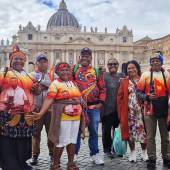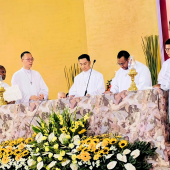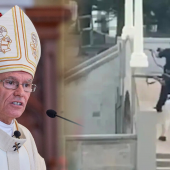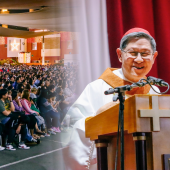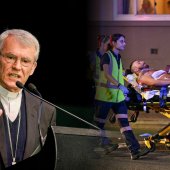PNG Bishop Calls for Electronic Voting in 2027
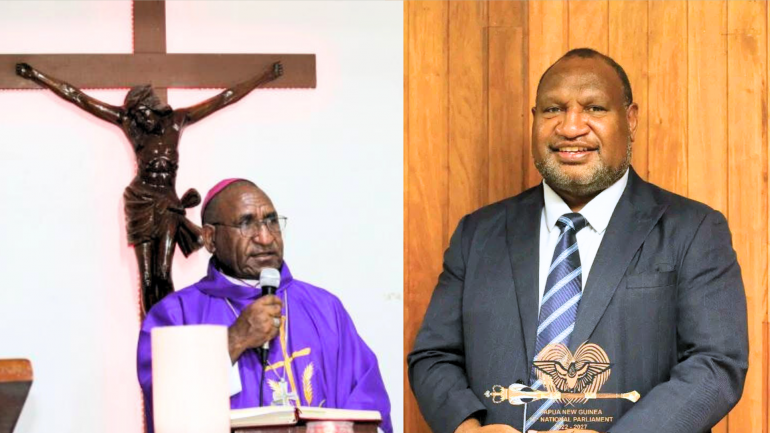
In a bold move to promote transparency and peace in Papua New Guinea’s electoral process, Bishop Justine Ain Soongie of the Enga Catholic Church has called on Prime Minister James Marape to adopt an Electronic Voting System (EVS) for the 2027 National General Election.
Speaking during the Feast of Our Lady of the Sacred Heart on May 30 at Caritas PNG in Wabag, Bishop Justine appealed for urgent electoral reform, citing the violence and fraud that marred the 2022 elections in provinces such as Enga, Hela, and Southern Highlands.
“The integrity of our elections is the integrity of our democracy,” he said. “I call upon Prime Minister James Marape to lead with courage and adopt electronic voting in 2027 to end this cycle of violence, cheating, and disenfranchisement.”
The bishop’s message has gained traction across faith-based and civic institutions, highlighting the Church’s growing role in structural reforms beyond traditional voter education.
Why Electronic Voting?
Justine outlined several benefits of EVS, including the prevention of violence, faster result tabulation, increased transparency, and broader youth engagement. He also emphasized digital voter registration and biometric verification as effective tools to combat electoral fraud.
“Over 60% of PNG’s population is under 25,” the bishop noted. “They are digitally literate and ready for change.”
Church History of Civic Engagement
The Enga Catholic Church has long promoted civic responsibility through education and peace campaigns. However, Caritas Coordinator Joel Peter acknowledged that during the 2022 elections, even the Church's efforts could not stop widespread corruption and violence.
“We saw young men destroying ballot boxes, candidates bribing officials, and entire communities left out of polling,” he said.
National and Global Support
Church and civil society leaders have expressed support for Bishop Justine’s proposal. The International Movement of Catholic Students - Pax Romana and organizations like Transparency International PNG have previously recommended digital and biometric systems.
Feasibility and Challenges
Experts suggest that a hybrid EVS model could be feasible for PNG, including biometric registration and electronic voting machines, supported by expanding telecom infrastructure. However, challenges remain, including infrastructure limitations, digital illiteracy, political resistance, and funding.
Justine, however, insists that the cost of inaction outweighs the challenges of reform.
A Moral Stand for Electoral Integrity
From school debates to village gatherings, the bishop’s appeal is sparking dialogue across Enga. A Grade 11 student, Kuim Lomeyari, voiced youth support: “If our votes are stolen, our future is stolen. We want clean elections.”
Tribal leader Teargun of Laiagam added: “We are tired of seeing our sons die in election violence. If this new way brings peace, then let’s try it.”
The Road Ahead
The Enga Catholic Professionals and Students will host a National Catholic Forum on Electoral Integrity in Port Moresby in early 2026 to continue discussions and draft a roadmap for electoral modernization.
As Justine concluded in his homily: “To build a just nation, we must first build just elections. And to do that, we must not fear innovation — we must embrace it with faith, wisdom, and courage.”
Whether the government will act on this proposal remains uncertain. But for now, the Church has spoken with the hope of millions.
Radio Veritas Asia (RVA), a media platform of the Catholic Church, aims to share Christ. RVA started in 1969 as a continental Catholic radio station to serve Asian countries in their respective local language, thus earning the tag “the Voice of Asian Christianity.” Responding to the emerging context, RVA embraced media platforms to connect with the global Asian audience via its 21 language websites and various social media platforms.









